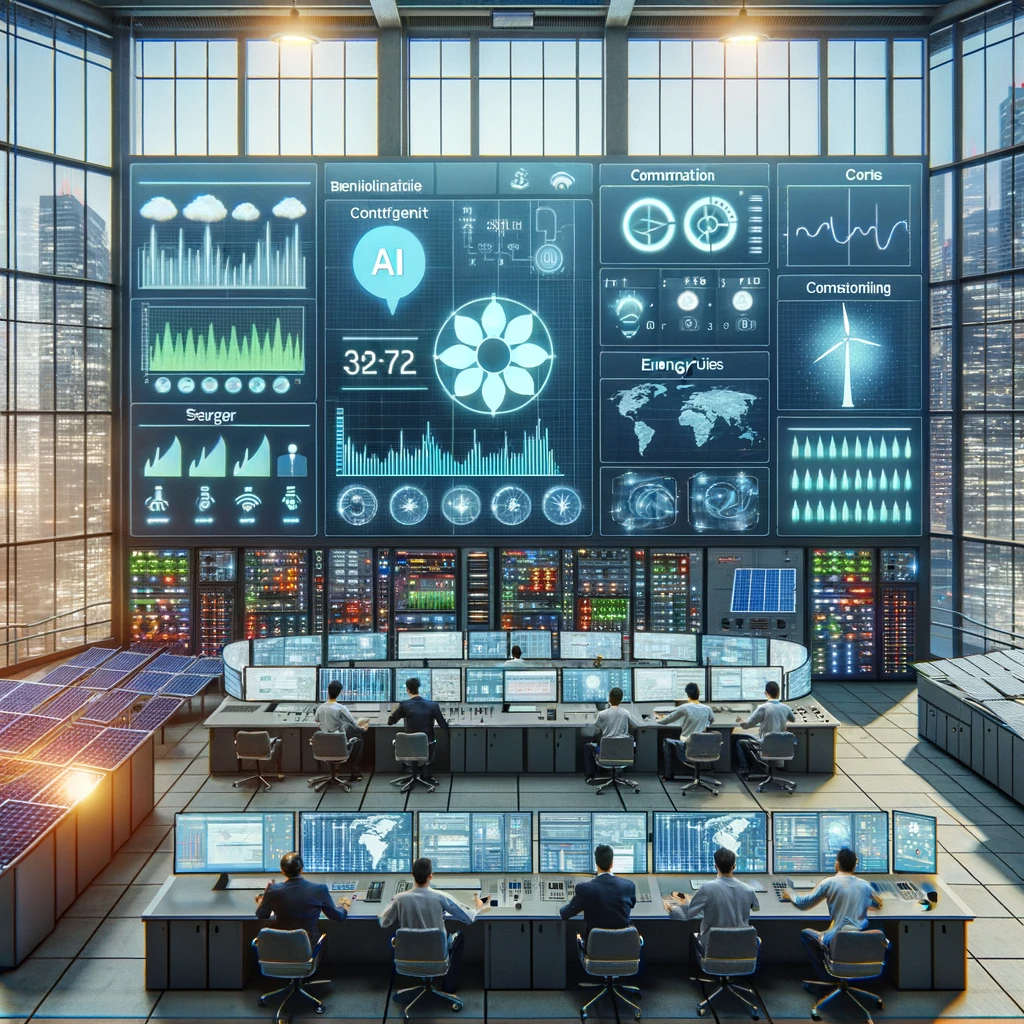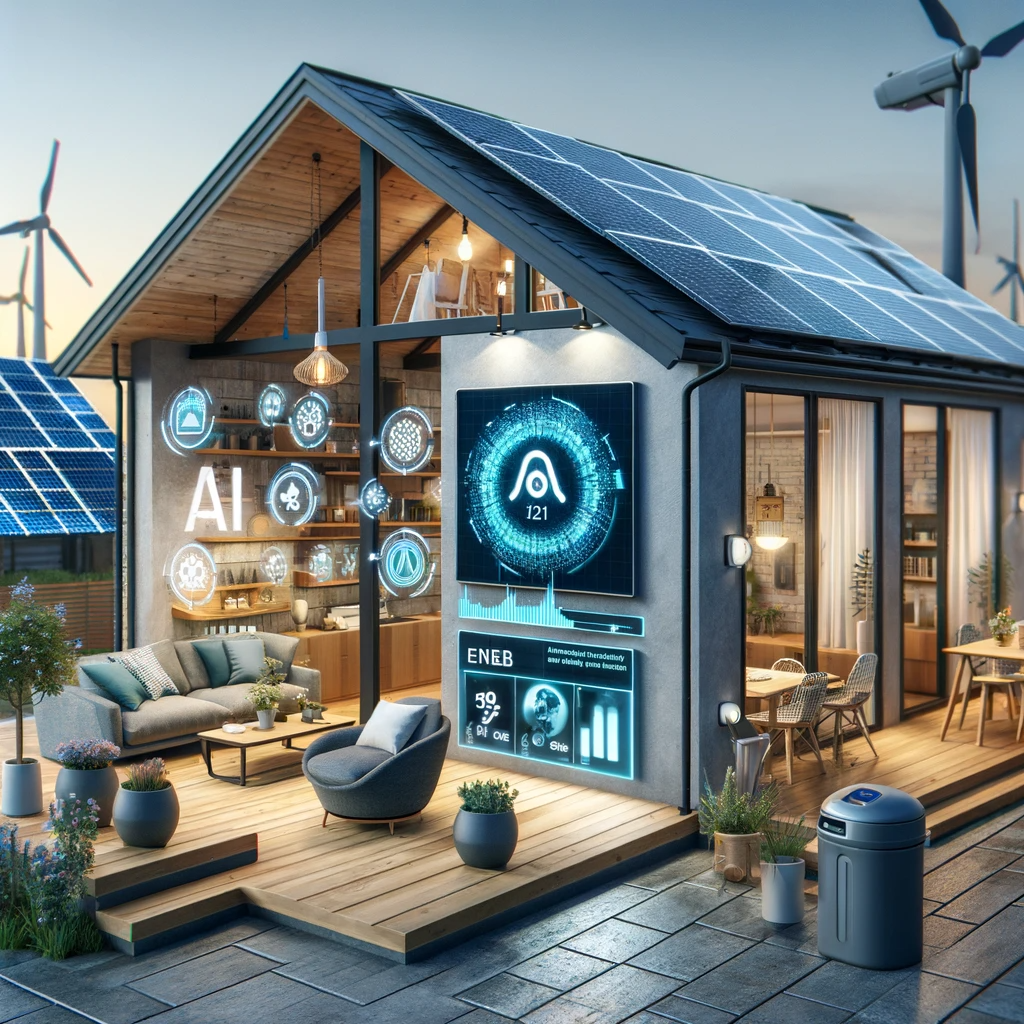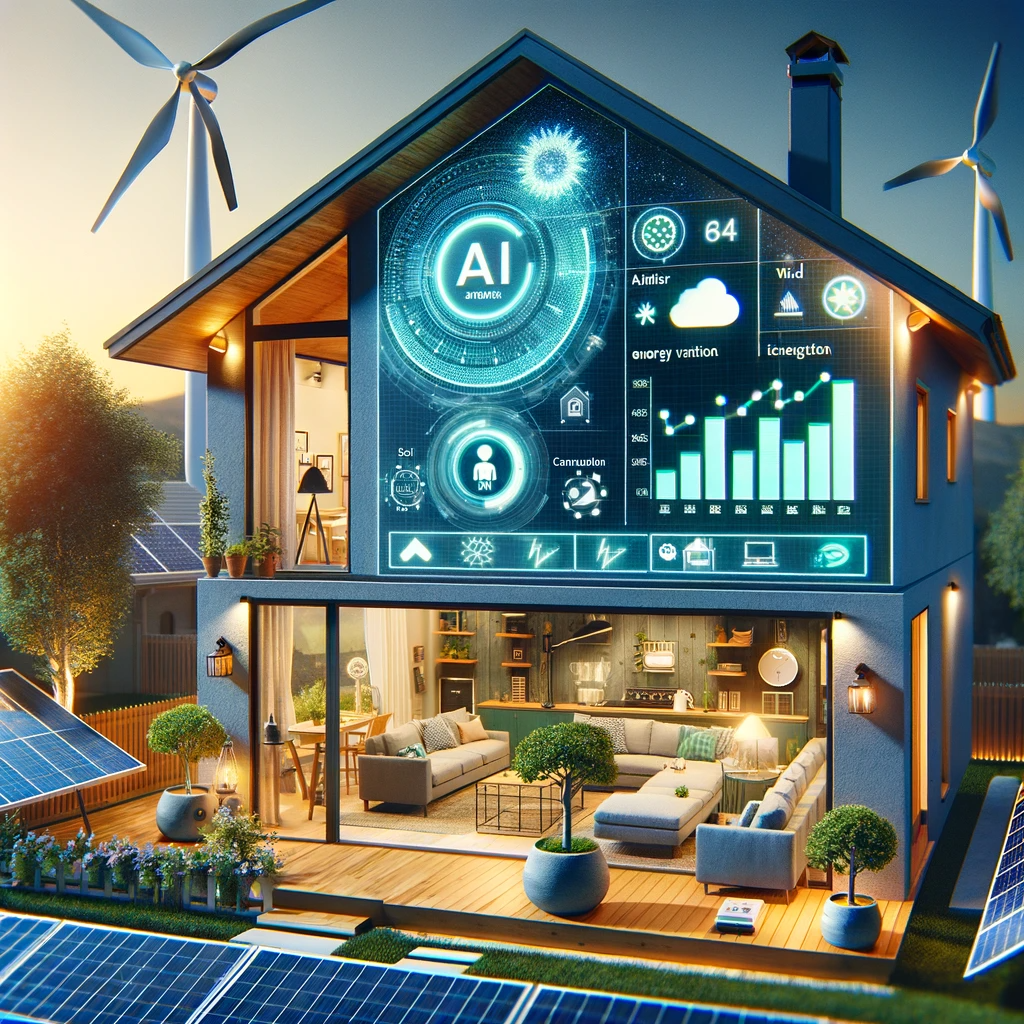In an era defined by the pressing need to combat climate change and reduce our carbon footprint, the transition to renewable energy sources has taken center stage. Solar panels adorn rooftops, wind turbines punctuate the horizon, and sustainable energy practices are becoming the norm. However, as we harness the power of renewables to drive a cleaner and greener future, a new challenge emerges: how can we maximize the efficiency and utilization of these intermittent energy sources in our homes and buildings? The answer may lie in the transformative capabilities of Artificial Intelligence (AI).
The world’s energy landscape is rapidly evolving. The undeniable benefits of renewable energy sources, such as solar, wind, and hydroelectric power, include reduced carbon emissions, enhanced energy security, and potential cost savings. Yet, their inherent variability presents a formidable challenge. The sun doesn’t always shine, and the wind doesn’t always blow. This unpredictability has led to inefficiencies in energy production and utilization, hindering the widespread adoption of renewable energy in homes and buildings.
Enter AI, the technology that has redefined our ability to analyze data, make predictions, and optimize complex systems. With its capacity to process vast datasets, adapt to changing conditions, and make real-time decisions, AI offers a promising solution to the renewable energy puzzle. In this exploration, we delve deep into the synergy between AI and renewable energy management, seeking to unravel the potential and possibilities that lie within.
Can AI truly be the key to unlocking the full potential of renewable energy sources in our homes and buildings? This article embarks on a journey to answer that question. We will examine how AI is revolutionizing renewable energy forecasting, optimizing energy consumption, enhancing energy storage, and integrating renewable sources into the grid. Along the way, we will discover the environmental, economic, and societal benefits that AI-integrated renewable energy systems can offer.
As we navigate this landscape of innovation, we invite you to join us in exploring the profound impact that AI can have on our quest for cleaner and more sustainable energy solutions. This is the story of how AI and renewable energy unite in a harmonious blend of technology and ecology—an exploration that is both timely and filled with promise.
The Rise of Renewable Energy
Renewable energy is on the rise globally, as societies recognize the need to transition away from fossil fuels to combat climate change. Solar, wind, hydroelectric, and other renewable sources are gaining prominence as they offer cleaner and more sustainable energy options. In this section, we will explore the growing importance of renewable energy and its impact on the environment and energy sector. We will also discuss the benefits of renewables, including reduced carbon emissions and energy cost savings. This sets the stage for the challenges that AI can help address in optimizing renewable energy usage in homes and buildings.
Challenges in Renewable Energy Management
While renewable energy sources have undeniable benefits, they also present unique challenges in terms of management and utilization. The intermittency of renewables, coupled with issues related to energy storage and grid integration, has posed significant hurdles. This section delves into these challenges, explaining why harnessing renewable energy efficiently is critical. By highlighting these obstacles, we prepare the groundwork for understanding how AI can provide solutions.
AI: The Potential Game-Changer
Artificial Intelligence, with its data analysis, prediction, and optimization capabilities, is positioned to be a transformative force in the renewable energy landscape. In this section, we introduce AI and its role in revolutionizing various industries, providing context for its potential in renewable energy management. We explore how AI can leverage data and algorithms to optimize energy usage in homes and buildings, reducing waste and improving overall efficiency. The stage is set for a deeper dive into AI’s specific applications in renewable energy.

AI in Renewable Energy Forecasting
One of the key areas where AI can make a significant impact is in renewable energy forecasting. This section explores how AI algorithms analyze a multitude of data sources, including weather patterns and historical data, to predict renewable energy generation. We discuss the importance of accurate forecasting for energy efficiency and examine real-world examples of AI-driven forecasting systems in action.
Optimizing Energy Consumption with AI
AI’s ability to optimize energy consumption in buildings can lead to substantial energy savings and increased sustainability. In this section, we explore how AI-driven algorithms can control heating, cooling, lighting, and appliances based on real-time data and user behavior. We present case studies of smart homes and buildings that benefit from AI-based energy optimization, highlighting the potential for cost savings and reduced environmental impact.
Energy Storage Solutions
Effective energy storage is crucial for managing renewable energy sources efficiently. This section discusses the importance of energy storage in the context of renewable energy management. It explores how AI can enhance energy storage by predicting energy demand and optimizing the operation of storage systems. Real-world examples of AI-integrated energy storage solutions illustrate the potential benefits.
Grid Integration and Demand Response
Grid integration is a key aspect of efficiently utilizing renewable energy sources. In this section, we examine how AI plays a vital role in integrating renewable energy into the existing grid infrastructure. We delve into demand response strategies enabled by AI, which help balance energy supply and demand in real-time. Case studies of AI-driven grid integration projects showcase their impact on the energy landscape.
Sustainability and Environmental Impact
Beyond efficiency gains, AI’s role in renewable energy management has profound implications for sustainability and environmental impact. This section explores how AI can contribute to reducing carbon emissions by optimizing renewable energy usage. It emphasizes the environmental benefits of reducing reliance on fossil fuels and improving energy efficiency, aligning with global efforts to combat climate change.
Economic Benefits and Cost Savings
AI-driven optimization of renewable energy systems not only benefits the environment but also offers economic advantages. In this section, we analyze how AI can lower energy bills, increase energy independence, and provide a return on investment for homeowners and businesses. Real-world examples demonstrate the potential for substantial cost savings through AI integration.
Barriers and Challenges in Implementing AI
While the potential of AI in renewable energy management is promising, it is not without its challenges. In this section, we address potential barriers to implementing AI, including concerns related to data privacy, cybersecurity, and infrastructure. We emphasize the importance of proper regulations and standards to ensure the responsible adoption of AI technologies in the renewable energy sector.
Case Studies and Success Stories
Real-world examples of AI-driven renewable energy solutions provide tangible evidence of the technology’s effectiveness. This section presents case studies and success stories from homes, buildings, or communities that have successfully integrated AI for renewable energy management. These examples showcase the outcomes, lessons learned, and improvements observed, illustrating the diversity of AI applications at different scales.
AI and Renewable Energy Policies
Government policies and incentives play a pivotal role in promoting the adoption of AI-driven renewable energy solutions. In this section, we discuss the importance of supportive regulations and policies that can accelerate the integration of AI in renewable energy management. We mention relevant initiatives or programs that encourage the implementation of AI technologies.
Future Prospects and Conclusion
As AI continues to evolve and integrate into renewable energy systems, the future holds immense promise. In this section, we speculate on the future of AI in optimizing renewable energy usage in homes and buildings. We discuss emerging technologies and trends that may further enhance AI’s role in renewable energy management. The section concludes by summarizing the key takeaways and underlining the transformative potential of AI in the renewable energy sector.

Conclusion
The conclusion of the article reiterates the significance of renewable energy and the role of AI in optimizing its usage. It emphasizes the potential of AI to overcome challenges and maximize the efficiency of renewable energy sources in homes and buildings. The conclusion encourages further exploration and adoption of AI-driven solutions in renewable energy management, underscoring the promising synergy between technology and environmental sustainability.
